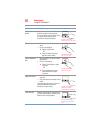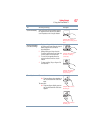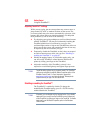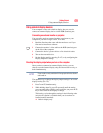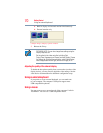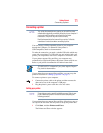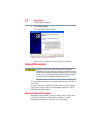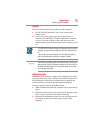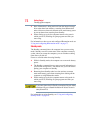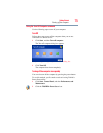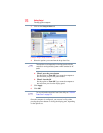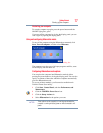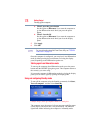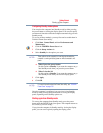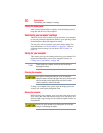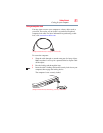
74
Getting Started
Turning off the computer
❖ Since information is being retrieved from the internal storage
drive rather than from memory, restarting from Hibernation
takes a little more time and consumes more main battery power
to start up than when restarting from Standby.
❖ When starting up again, the computer returns to the state in
which you left it, including all open programs and files you
were using.
For information on how to use and configure Hibernation mode see
“Using and configuring Hibernation mode” on page 77.
Standby mode
The Standby command places the computer into a power-saving
mode. Standby saves the current state of the computer to memory
so that, when you restart the computer, you can continue working
from where you left off.
Factors to consider when choosing Standby:
❖ While in Standby mode, the computer uses some main battery
power.
❖ The Standby command does not store unsaved information on
your internal storage drive. You should save your work before
putting your computer on Standby.
❖ Restarting from Standby takes less time and may consume
more main battery power than restarting from turning off the
computer or using Hibernation mode.
❖ When starting up again, the computer returns to the mode in
which you left it, including all open programs and files you
were using.
If you power down using the Standby command and the main battery
discharges fully, your unsaved information will be lost. Be sure to
save your work first.
For information on using Standby, see “Using and configuring
Standby mode” on page 78.



